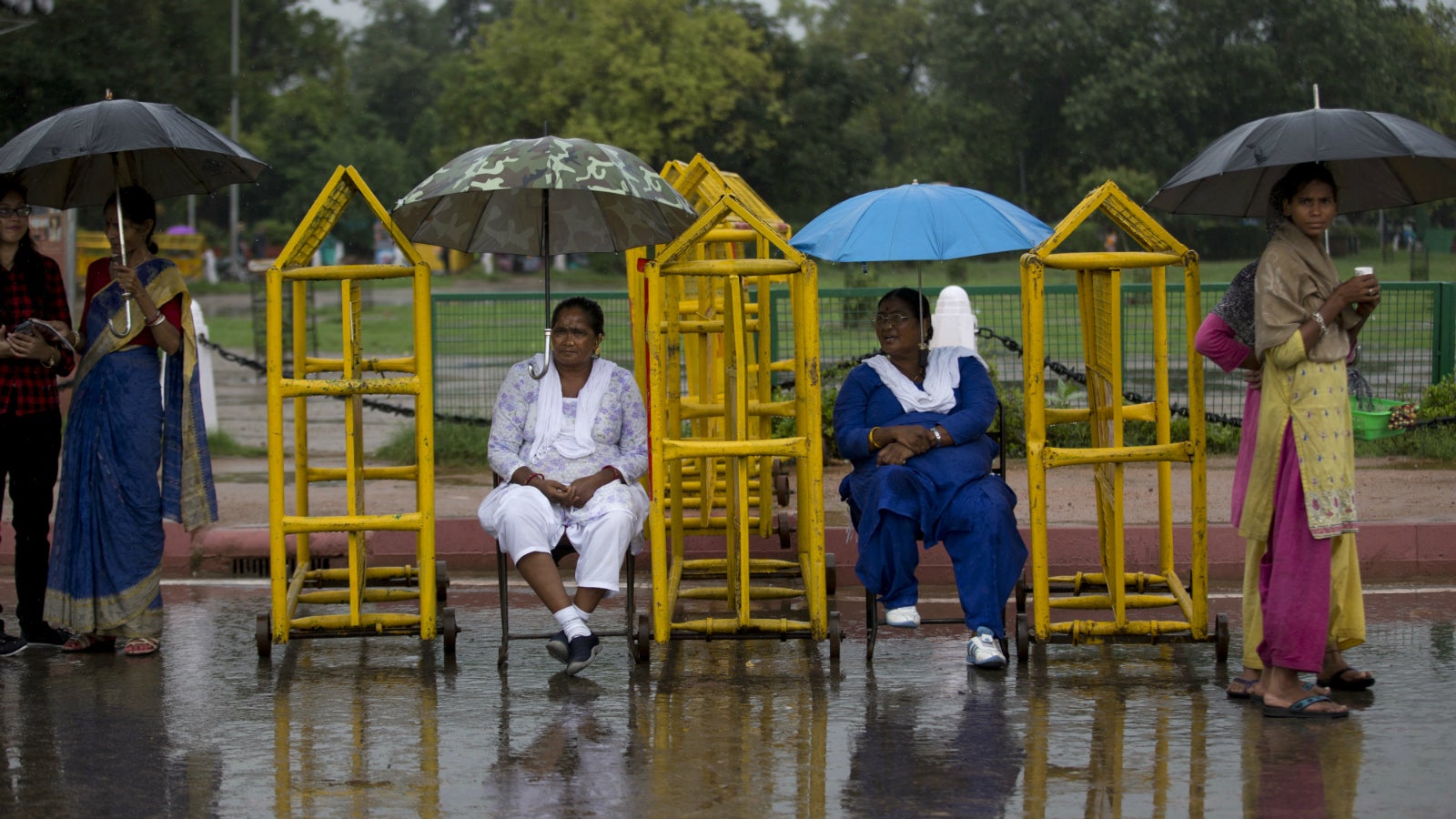The collateral damage in Modi’s fight against black money: Indian housewives
On the evening of Nov. 08, social media in India exploded with gifs on Narendra Modi’s decision to scrap Rs500 and Rs1,000 notes overnight. A WhatsApp joke in Hindi, too, began making the rounds. It read: “Tomorrow, a lot of married men in India are going to find out how much black money their wives have.” This hit too close to reality.


On the evening of Nov. 08, social media in India exploded with gifs on Narendra Modi’s decision to scrap Rs500 and Rs1,000 notes overnight. A WhatsApp joke in Hindi, too, began making the rounds. It read: “Tomorrow, a lot of married men in India are going to find out how much black money their wives have.” This hit too close to reality.
The ruling government has withdrawn the country’s highest denomination notes to fight black money, or illegal wealth. However, the move has also had an unintended victim: Indian housewives.
For many generations, Indian housewives have syphoned off tiny amounts of cash from the sum they received from their husbands to run the household. Hidden in kitchen jars, tucked under mattresses, or stashed away in the dark corners of closets, this money can grow into a significant reserve over time. Often concealed from the husband and other family members, it becomes her treasure, to be used as and when she pleases.
Since the now-obsolete notes account for 86% of all currency notes in circulation (by value), chances are that for many middle-class women, a large part of their fund has become worthless.
“I wanted to use the money I had saved this year for a trip to Hyderabad and to buy gifts for my relatives and friends. Nobody in the house knew about it,” Kolkata-based Faruqa Ehsan told me in Hindi during a telephone interview.
It is important for these women to keep this money hidden as it gives them complete control over how to use it—be it during emergencies or for personal shopping trips.
“I don’t have to explain my personal spending to any man in the family,” said Ehsan’s daughter-in-law, who follows the same practice.
While the current stash came from cash-gifts given to Ehsan by her sons in Dubai, the 55-year-old has also been scrimping and saving all her life. And, the money came in handy during crucial events in her life.
“Earlier I used to save from the money my husband gave me every month to run the house. Eventually, I used the saved amount to get jewellery for my daughter when she got married,” Ehsan said.
On Nov. 08, though, she had to lift the veil from her small hidden treasure.
Following Modi’s announcement, she informed her entire family about her savings. Indians had 50 days to deposit the scrapped notes at banks or post offices. But Ehsan could not have done it herself as she is uneducated and has never operated a bank account on her own.
According to a United Nations report, 80% of women in India did not have access to a bank account in 2014. Assuming that this number has improved since then, it is unlikely to have changed much on the ground. “Even if women have bank accounts in their name, they are not maintained by them,” said Priyanka Bhatia, co-founder of Women on Wealth, a company that teaches women to manage and invest their wealth. “Most of them don’t even use an ATM alone.”
In patriarchal India, even most educated women are not financially empowered and perceive any bank-related chore as a “man’s job.”
Bhatia, who has had several distressed women walking into her South Delhi office since Modi’s speech, says this problem is widespread among the elite, too. “Some of these women had saved lakhs of rupees and they are in shock.”
Panic at the kitty party
Almost four decades ago, as a young newlywed, Sunila Kapoor (last name changed) began saving cash-gifts she had received. Her husband had no clue. “This money in-hand made me feel secure. I lived with a conservative joint family and was not sure what my in-laws would do if they found out about my savings.”
Later in life, as her family grew more prosperous, she joined a “kitty party”, a social gathering and an informal savings group of 10-20 women in the wealthy South Extension locality of Delhi.
In such meetings—common in South Asia and usually held over lunch—members contribute equal amounts into a kitty every month. A raffle-like system is then deployed to select a member who gets the entire lot that month. Sunila, like most women in her elite group, used this lump sum to buy herself gold and diamond jewellery.
Most of her friends are now unsure about the future of the hundreds of thousands of rupees they have saved, often through such kitty parties, over the years. The government has said that during the 50-day window, bank deposits above Rs2.5 lakhs would be taxed and a 200% penalty would be levied if the deposits don’t match declared incomes. This has become a source of worry for Sunila and other wives in her kitty party, most of whom are married to businessmen with black money. Presumably, their husbands would not want this money to see the light of the day anymore than they do.
With these full disclosures—and maybe loss—of their painstakingly-gathered savings, many housewives stand to lose not just the little financial independence they have, but possibly also their dignity.
But as the fate of their reserve hangs in balance, Bhatia hopes this drastic move by Modi encourages both middle-class and rich women to make wiser financial decisions.
“Women have forgotten the difference between saving and hoarding,” she said. “Maybe they will learn to invest now.”